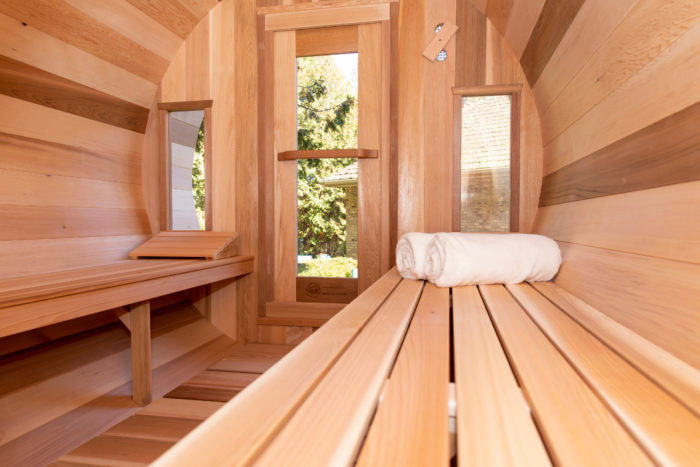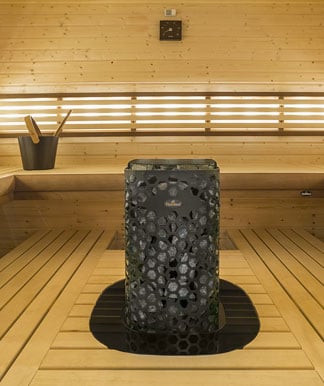Traditional Sauna Fundamentals Explained
Traditional Sauna Fundamentals Explained
Blog Article
Top Guidelines Of Traditional Sauna
Table of ContentsA Biased View of Traditional SaunaThe Best Strategy To Use For Traditional SaunaNot known Incorrect Statements About Traditional Sauna Not known Incorrect Statements About Traditional Sauna Some Known Factual Statements About Traditional Sauna
Energy cost savings is one point to consider for individuals who intend on utilizing their sauna regularly. For a standard sauna, bathers generally need to wait on 30-40 minutes for the area to pre-heat prior to getting in. Infrared saunas, on the other hand, commonly reach their ideal temperature in around 15 minutes.That suggests that in an infrared sauna, bathers can begin appreciating their sauna right away. One distinction between the 2 types of sauna that is often neglected is the social experience.
Also, take into consideration the amount of people will be using the sauna prior to making your choice - Traditional Sauna. Including a sauna to your home can be among one of the most exciting and satisfying choices you'll ever make. Routine sauna usage will boost your flow, keep healthier skin, support kidney function, minimize blood stress, improve brain function, and far more
Try a sauna today and uncover some of the incredible benefits on your own!.
Traditional Sauna Can Be Fun For Anyone
Infrared and traditional dry saunas are both prominent options for those seeking relaxation and therapeutic benefits. There are some essential differences between the 2 kinds of saunas that need to be thought about before making a choice. Standard dry saunas make use of warmed rocks to produce steam, while infrared saunas utilize infrared heating units to directly heat the body
Elements such as heat resistance, wanted degree of cleansing, and total wellness must be considered when determining which kind of sauna to utilize. Infrared saunas are a kind of sauna that use infrared light to heat the body straight, as opposed to heating up the air around the body like typical saunas.
The temperature level in an infrared sauna is typically less than in a standard sauna, with temperature levels varying from 120F to 150F. Infrared saunas offer a series of benefits that make them an attractive alternative for those looking to boost their health and wellness and wellbeing. A few of the benefits of infrared saunas include: Infrared saunas utilize lower temperature levels than standard saunas, which can make them much more comfy for those that find high temperatures difficult to endure.

Infrared saunas have been shown to assist the body get rid of toxic substances with sweating. Sweating can additionally aid to boost skin health and wellness by removing impurities and dead skin cells.
The Ultimate Guide To Traditional Sauna

With their reduced temperature levels, deep infiltration, and variety of health and wellness advantages, infrared saunas are a terrific means to kick back, take a break, and improve your total health. Conventional completely dry saunas have been around for centuries and are still preferred today. They are usually warmed with timber, gas, or electricity and have low moisture degrees.
There are several benefits to using a typical dry sauna. Below are a few: Leisure: The high temperature level and low moisture in conventional completely dry saunas can aid unwind the muscular tissues and decrease stress levels. Detoxing: Sweating in a sauna can help eliminate toxic substances from the body, which can enhance general health.
See This Report on Traditional Sauna
When it Read More Here comes to saunas, there are two primary kinds of heating methods: conventional and infrared. Typical saunas make use of heated air to heat the body, while infrared saunas use infrared radiation to permeate the skin and warmth the body from within. Among the main distinctions between both approaches is the type of warm they create.
Conventional saunas warm the air, which then warms the body with convection. Infrared saunas, on the other hand, heat the body straight via radiation.
In regards to power effectiveness, infrared saunas are generally more effective than standard saunas due to the fact that they need much less power to run. They also warm up faster, so they can be made use of for shorter sessions. When it involves the effects on the body, both kinds of saunas have actually been shown to have benefits.

Facts About Traditional Sauna Revealed
Both types of saunas supply distinct advantages and downsides that must be considered before deciding. The choice in between an infrared sauna and a standard completely dry sauna greatly depends on personal preference and the desired benefits. Those that choose an even try this more comfy, reduced temperature environment may choose an infrared sauna, while those that are seeking intense heat and a traditional sauna experience might choose a conventional completely dry sauna.

Report this page